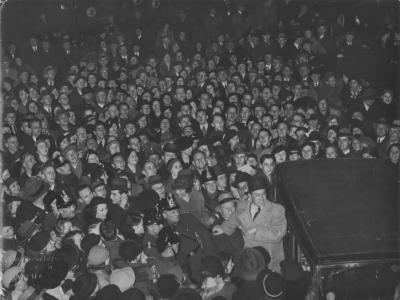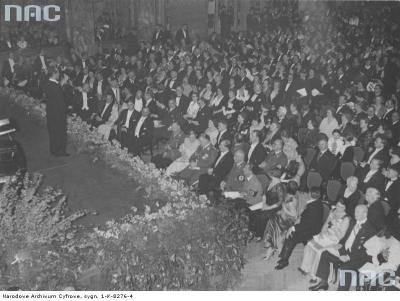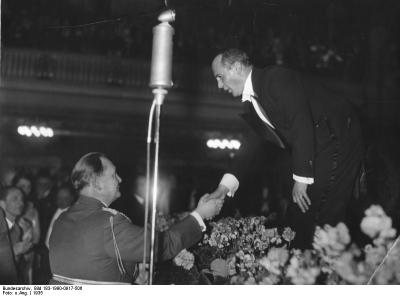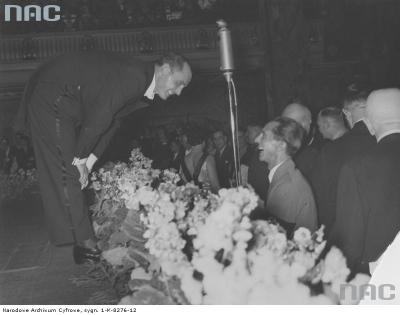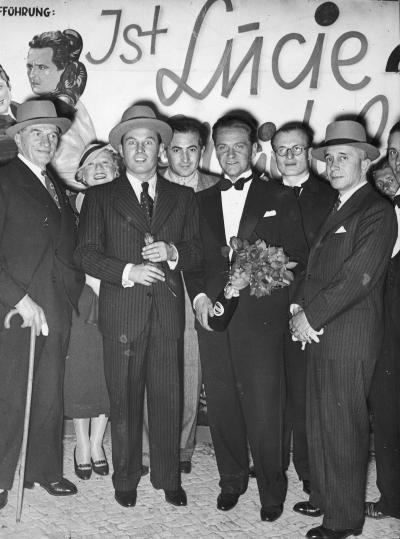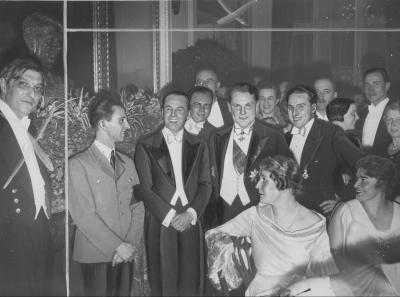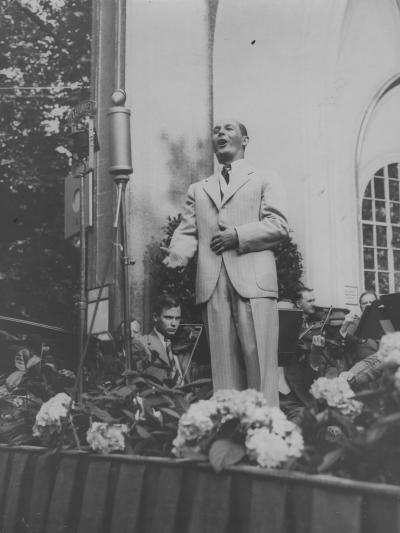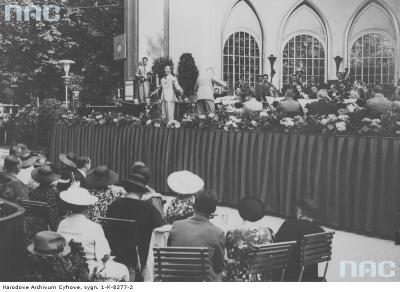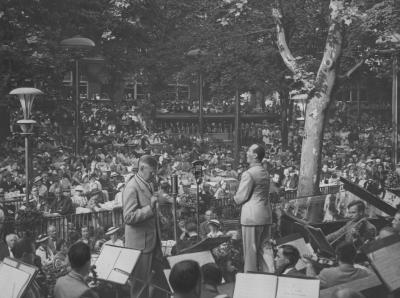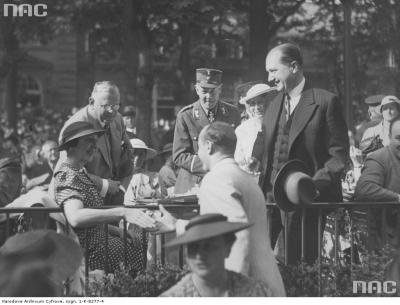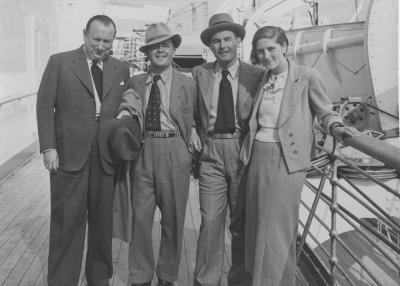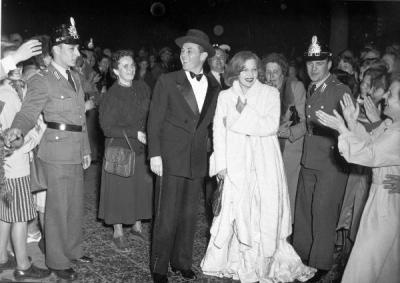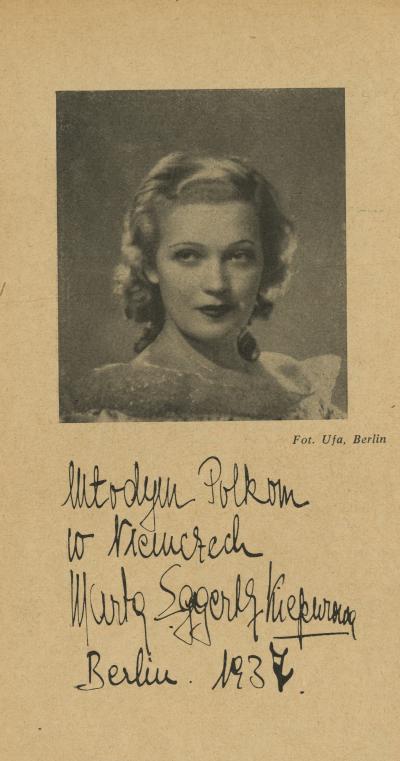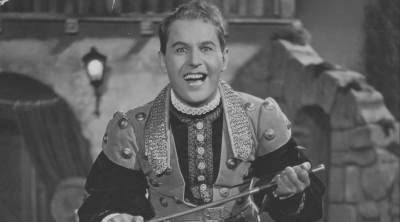Jan Kiepura (1902–1966)
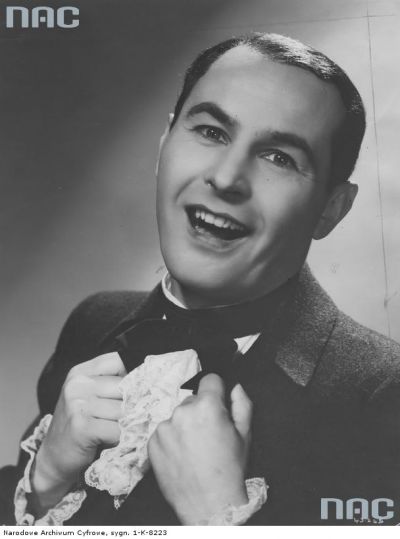
“Ob blond, ob braun, ich liebe alle Frau’n!” (“Blondes, brunettes, I love all women”) When this hit song conquered the streets and courtyards of Germany in 1935 Jan Kiepura was at the peak of a worldwide career. Audiences poured into German cinemas on his account alone.
Jan Wiktor Kiepura was born in 1902 in Sosnowiec, a town that was a part of the Tsarist empire in Russia at the time, but today belongs to Poland. He had a Catholic father (Fanciszek) and a Jewish mother (Miriam). His childhood was spent in less affluent surroundings, mainly between school and work in the family bakery. His musical talent was clear from the start because he loved to sing a lot at home and in school. His early political commitment was also clear: he was a member of the “Polish Military Organisation” (Polska Organizacja Wojskowa / POW) and took part in the First and Second Silesian Uprisings (I i II Powstanie Śląskie). After a lot of hard work Jan Kiepura passed his A-levels in 1921 and immediately began a course in law at Warsaw University, something which corresponded with the wishes of his parents. That said, he failed to complete his studies. At the same time he took lessons in singing from Władysław Brzeziński and Tadeusz Leliwa, something that was definitely against the wishes of his parents. Four years later he began appearing on stage in various Polish towns and cities, including Lwów, Poznań and Warsaw. In 1926 he left Poland for Vienna to embark on an international career. Here, in September 1926 he made a triumphant debut in Puccini’s Tosca in the role of Cavaradossi. Henceforth Jan Kiepura began to conquer the opera world as a leading tenor.
The next great break in his career was in 1930 when he filmed “The Singing City” under the direction of Carmine Gallone. The film was shot in three languages: German, French and English. This was usual at the time. But what was not so usual was the fact that Jan Kiepura sang in all other languages in his films. The film was a triumph and from now on Jan Kiepura dedicated himself to the new “talking movie” medium, without however completely neglecting the stage. He continued to sing in recitals and operas and often appeared in benefit galas. He was also known for his “spontaneous” recitals in front of hotels and on car roofs, everywhere where he was awaited by his huge number of fans.
Jan Kiepura shot more films in Germany in the 1930s. They not only bear witness to his talent as a singer and actor but are still a part of the canon of musical film history. These include “Das Lied einer Nacht” (1932, a German production directed by Anatole Litvak, with additional English and French versions), “Ein Lied für dich” (1933, a German/French production directed by Joe May and Henri-Georges Clouzot, in German and French versions), “Mein Herz ruft nach Dir” (1934, a German production directed by Carmine Gallone, with additional French and English versions), “Ich liebe alle Frauen” (1935, a German/French production directed by Carl Lamac, in German and French versions), “Im Sonnenschein” (1936, a German production directed by Carmine Gallone), and “Zauber der Bohème” (1937, an Austrian production directed by Géza von Bolváry). Interestingly enough, in almost all his films Jan Kiepura sang one song in Polish.
